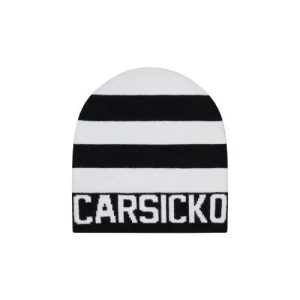The idea of feeding dogs a vegan diet is gaining traction as more pet owners adopt plant-based lifestyles and seek similar options for their furry companions. While humans can thrive on vegan diets, the question remains: Can dogs be vegan? This blog delves into the science behind vegan dog food, its benefits and risks, and the best ways to ensure your dog stays healthy while following a plant-based diet.
Understanding a Dog’s Nutritional Needs
Before considering a vegan diet for your dog, it’s important to understand their nutritional requirements. Dogs are omnivores, meaning they can eat both plant and animal-based foods. However, their dietary needs are specific and must be carefully balanced to ensure optimal health.
Essential Nutrients for Dogs
Dogs require a combination of proteins, fats, carbohydrates, vitamins, and minerals to thrive. Key nutrients include:
- Protein: Essential for muscle development and repair.
- Amino Acids: Dogs need 10 essential amino acids that must come from their diet.
- Fatty Acids: Omega-3 and Omega-6 fatty acids support skin, coat, and brain health.
- Vitamins and Minerals: Vital for various bodily functions, including immune support and bone health.
A balanced dog food diet must include all these nutrients, whether from animal or plant sources.
Can Dogs Thrive on a Vegan Diet?
While dogs can technically survive on a vegan diet, the bigger question is whether they can thrive. A well-planned vegan diet can meet all of a dog’s nutritional needs, but it requires careful attention to detail and often supplementation.
Benefits of Vegan Dog Food
- Allergy Management: Some dogs have allergies to common animal proteins like beef or chicken. Vegan diets can help alleviate these issues.
- Weight Management: Plant-based diets are often lower in fat, making them suitable for weight control.
- Environmental Impact: Choosing plant-based dog food reduces the carbon footprint associated with animal farming.
- Ethical Reasons: Many pet owners prefer vegan diets for their dogs to align with their own ethical beliefs regarding animal welfare.
Risks of Vegan Diets for Dogs
- Nutritional Deficiencies: Without proper planning, vegan diets can lack essential nutrients like taurine, vitamin B12, and certain amino acids.
- Digestive Issues: Some dogs may have trouble digesting plant-based foods, leading to gastrointestinal discomfort.
- Palatability: Dogs accustomed to meat-based diets may initially reject vegan dog food.
Key Ingredients in Vegan Dog Food
Creating a balanced vegan diet for dogs involves using a variety of plant-based ingredients that provide necessary nutrients.
Protein Sources
- Lentils: High in protein and fiber.
- Chickpeas: A versatile source of protein and complex carbohydrates.
- Quinoa: A complete protein containing all essential amino acids.
- Soy: Commonly used in commercial vegan dog food for its high protein content.
Essential Fatty Acids
- Flaxseed: Rich in Omega-3 fatty acids.
- Chia Seeds: Provide both Omega-3 and Omega-6 fatty acids.
- Coconut Oil: Offers medium-chain triglycerides for energy and skin health.
Vitamins and Minerals
- Nutritional Yeast: A source of B vitamins, including B12.
- Seaweed: Provides iodine for thyroid health.
- Calcium Supplements: Ensure bone health, especially when dairy is excluded.
Transitioning Your Dog to a Vegan Diet
If you decide to transition your dog to a vegan diet, it’s important to do so gradually to avoid digestive issues and ensure acceptance of the new food.
Steps for a Smooth Transition
- Consult Your Veterinarian: Always discuss dietary changes with your vet, especially for dogs with existing health conditions.
- Gradual Introduction: Mix vegan dog food with your dog’s current food, gradually increasing the plant-based portion over 1-2 weeks.
- Monitor Health: Watch for signs of digestive upset, lethargy, or changes in coat condition.
- Regular Check-ups: Schedule regular vet visits to monitor your dog’s health and adjust the diet as needed.
Signs Your Dog May Not Be Thriving on a Vegan Diet
While many dogs do well on vegan diets, it’s important to recognize signs that indicate nutritional deficiencies or health issues.
Warning Signs
- Lethargy: A lack of energy could signal protein or nutrient deficiencies.
- Weight Loss: Unintended weight loss may indicate insufficient caloric intake.
- Poor Coat Condition: Dull, brittle fur can result from inadequate fatty acids.
- Digestive Issues: Persistent diarrhea or vomiting suggests the diet may not be suitable.
If you notice any of these signs, consult your veterinarian immediately to adjust your dog’s diet.
Popular Vegan Dog Food Options
There are several commercial vegan dog food brands available that meet AAFCO (Association of American Feed Control Officials) nutritional standards. These products are formulated to provide all essential nutrients for dogs.
What to Look for in Vegan Dog Food
- Complete and Balanced Label: Ensure the product meets AAFCO standards for complete and balanced nutrition.
- High-Quality Ingredients: Look for whole food ingredients and avoid fillers like corn or soy by-products.
- Supplementation: Check for added vitamins and minerals, particularly taurine, B12, and L-carnitine.
DIY Vegan Dog Food Recipes
For pet owners who prefer homemade options, here are a couple of easy vegan dog food recipes. Always consult your vet before switching to homemade diets to ensure nutritional adequacy.
Recipe 1: Lentil and Quinoa Bowl
Ingredients:
- 1 cup cooked lentils
- 1 cup cooked quinoa
- 1/2 cup chopped carrots
- 1/2 cup spinach
- 1 tablespoon flaxseed oil
- Nutritional yeast for B vitamins
Instructions:
- Cook lentils and quinoa separately until tender.
- Lightly steam carrots and spinach.
- Mix all ingredients in a bowl, add flaxseed oil, and sprinkle nutritional yeast on top.
Recipe 2: Chickpea Stew
Ingredients:
- 1 cup cooked chickpeas
- 1/2 cup brown rice
- 1/2 cup sweet potato, diced
- 1 tablespoon coconut oil
- A pinch of seaweed flakes for iodine
Instructions:
- Cook brown rice and sweet potato until soft.
- Mash chickpeas lightly and mix with rice and sweet potato.
- Add coconut oil and sprinkle seaweed flakes.
Balancing Vegan Diet with Play and Enrichment
Diet isn’t the only aspect of a dog’s well-being. Mental and physical stimulation are equally important. Pairing a nutritious vegan dog food diet with interactive dog toys can keep your dog happy and healthy.
Best Dog Toys for a Healthy Lifestyle
- Puzzle Toys: Stimulate your dog’s mind and keep them engaged.
- Chew Toys: Help with dental health and satisfy natural chewing instincts.
- Fetch Toys: Encourage physical activity to complement a balanced diet.
- Interactive Feeders: Slow down eating and make mealtime fun, especially when introducing new vegan dog food.
Conclusion
So, can dogs be vegan? The answer is yes, but with careful planning and attention to their specific nutritional needs. A vegan diet can offer health benefits, ethical alignment, and environmental advantages. However, it’s crucial to ensure that your dog receives all essential nutrients, either through commercial vegan dog food or carefully crafted homemade meals.
Always consult with a veterinarian before making significant dietary changes, and keep a close eye on your dog’s health and behavior. Combine a well-balanced vegan diet with regular exercise and enrichment through dog toys for a happy, healthy life.
By understanding the intricacies of plant-based dog food and how it impacts your dog’s health, you can make informed decisions that benefit both your furry friend and the environment.










